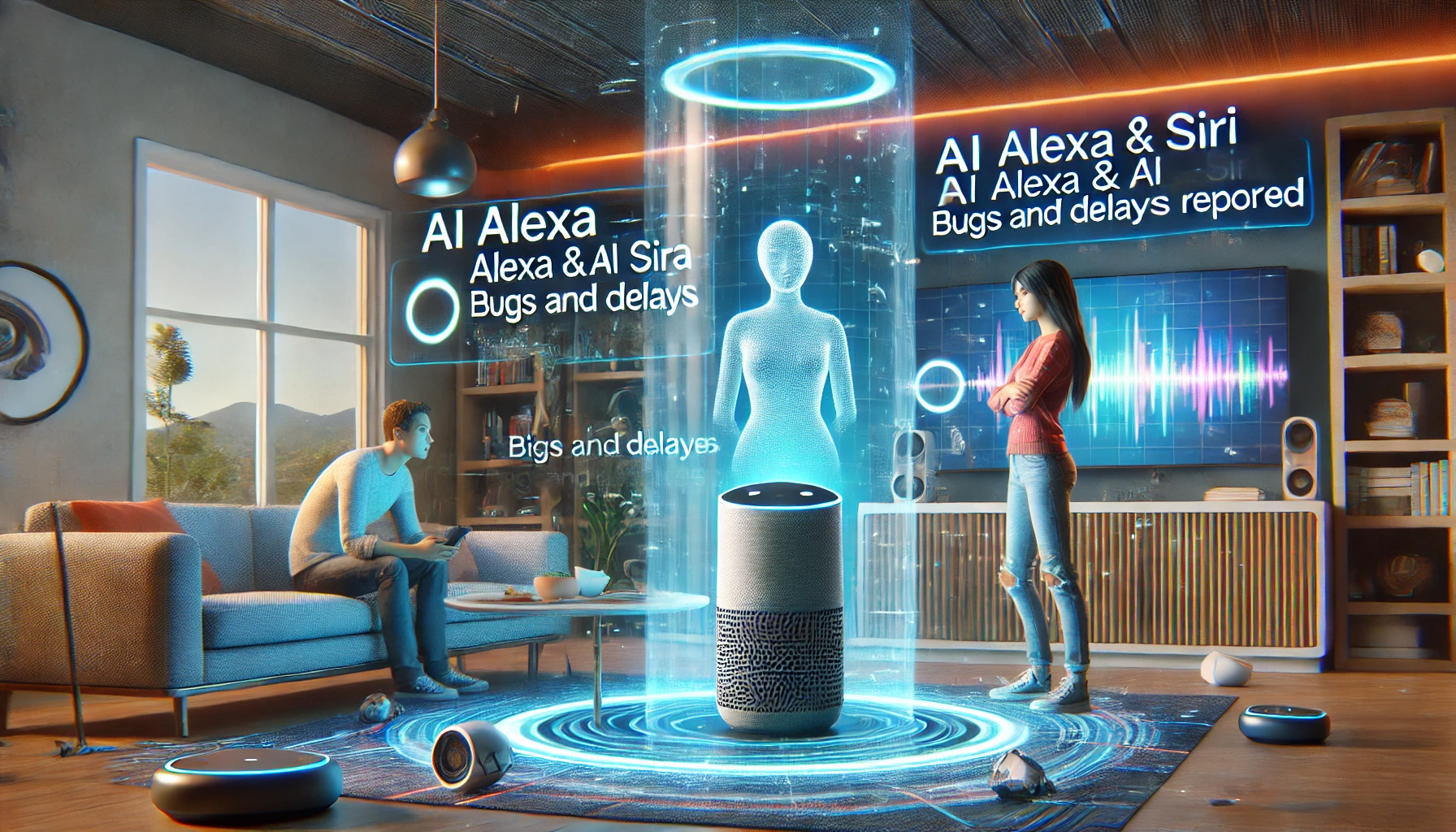Amazon and Apple, two tech giants known for their innovative AI voice assistants, Alexa and Siri, respectively, are currently facing challenges in integrating generative AI into their products. According to recent reports, both companies are struggling with technical issues that could delay the release of their enhanced voice assistants.
Amazon’s Alexa, which was expected to receive a significant upgrade in February, is now likely to be delayed until March or later. The company is reportedly grappling with making Alexa’s operations cost-effective and reliable, particularly in controlling smart home devices. Meanwhile, Apple’s Siri, which was set to receive new features in April, may face a limited initial rollout or a delay until May due to engineering problems and software bugs.
These delays and bugs have significant implications for the competitive landscape of AI voice assistants, particularly in relation to OpenAI’s Advanced Voice Mode and Google’s Gemini Live. OpenAI’s product, launched in late 2024, has already established a head start in the market, offering users a more conversational and contextually aware AI voice assistant experience. The delays in Apple’s and Amazon’s updates give OpenAI more time to refine and improve its product, potentially solidifying its position as a leader in AI voice assistants. Additionally, Apple and Amazon’s struggles may encourage more users to switch to OpenAI’s platform, further expanding its user base and market share.
Google’s Gemini Live, expected to launch in early 2025, is also poised to benefit from the delays in Apple’s and Amazon’s updates. With Apple and Amazon facing technical challenges, Google has more time to perfect its AI voice assistant, ensuring a smoother launch and user experience. The delays may also prompt Google to accelerate its development process, aiming to release Gemini Live ahead of schedule and capitalize on the competition’s setbacks.
The market dynamics for AI voice assistants are shifting, with users becoming more accustomed to advanced AI voice assistants and expecting a more sophisticated and reliable experience. As a result, users may be less tolerant of technical issues and limitations in other AI voice assistants, further pressuring Apple and Amazon to improve their products.
To mitigate these issues and ensure a successful launch of their enhanced AI voice assistants, Amazon and Apple can employ several strategies. First, they should invest in advanced Natural Language Processing (NLP) algorithms to enhance voice assistants’ understanding of context, accents, and languages. Second, they should strengthen partnerships with third-party developers and device manufacturers to ensure seamless integration with voice assistants. Third, they should address privacy and security concerns by implementing robust security measures to protect user data and ensure privacy. Fourth, they should conduct thorough testing and gather user feedback to identify and fix bugs and issues before launch. Fifth, they should clearly communicate the features and limitations of the new voice assistants to manage user expectations. Finally, they should regularly update and improve the voice assistants based on user feedback and advancements in AI technology.
In conclusion, the delays and bugs in Apple’s and Amazon’s AI voice assistant updates have significant implications for the competitive landscape, particularly in relation to OpenAI’s Advanced Voice Mode and Google’s Gemini Live. These setbacks create opportunities for other players to capture market share, raise user expectations, and potentially reshape the market dynamics in AI voice assistants. By following the recommended strategies, Amazon and Apple can mitigate the issues they’re facing and ensure a successful launch of their enhanced AI voice assistants.
Read more at: https://www.ainvest.com/news/ai-alexa-ai-siri-face-bugs-delays-2502/


